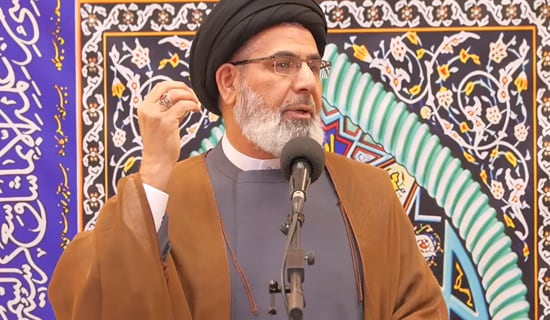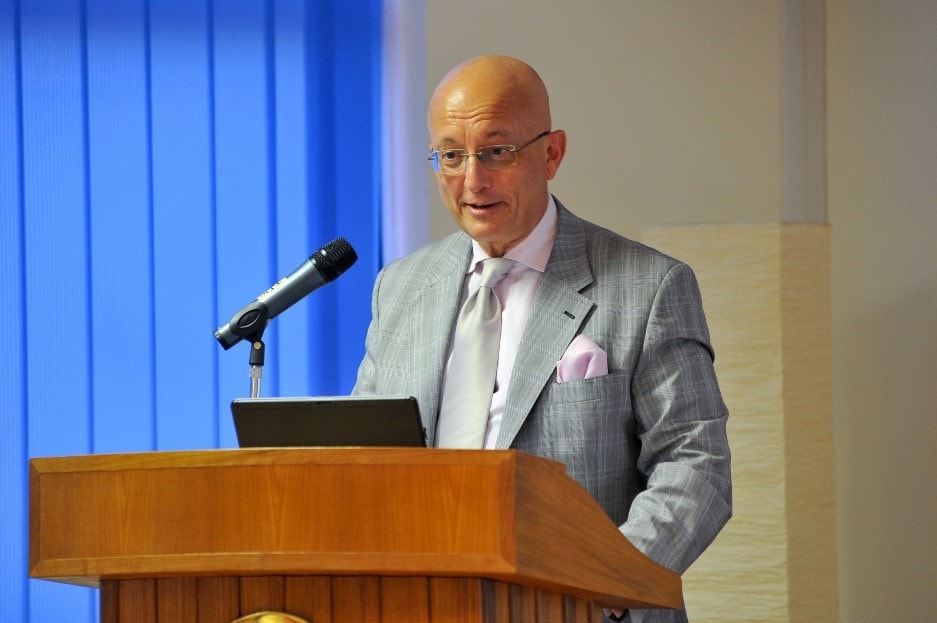Ahead of the 10th anniversary of the outbreak of the Syria war, Ayman 'Abd Al-Nour, a Christian Syrian oppositionist residing in the U.S., published an article in the London-based daily Al-Sharq Al-Awsat calling for U.S. involvement in resolving the Syria crisis. He urged President Joe Biden to lead a comprehensive multi-systemic plan that will transform Syria into a prosperous and peaceful state, and which will not only benefit Syria but also serve the American interests in the region. 'Abd Al-Nour, who was formerly an associate of Syrian President Bashar Al-Assad and even served as his advisor, noted that many Syrians are in favor of significant U.S. involvement in Syria's reconstruction, and added that the first step must be for the U.S. and Russia to agree on the need to replace Assad. He also recommended appointing a special U.S. envoy for Syria[1] who will form teams, incorporating Syrian oppositionists, for addressing the crisis in the various areas. The plan, he added, must also include a peace agreement between Syria and Israel to determine the status of the Golan, as well as a move to federalize Syria.
It should be mentioned that the article was published amid concerns in the Syrian opposition that resolving the Syria crisis is not a top priority for the Biden administration.[2]

Ayman 'Abd Al-Nour (Source: Al-Arab, London, August 13, 2020)
The following are excerpts from Ayman 'Abd Al-Nour's article:[3]
"Let us imagine Syria not as a war-torn country but as a train careening on ruined tracks [directly] into an inferno. According to the UN, the officially-recognized driver of that train is still Bashar Al-Assad. Each of the cars wobbling behind him is laden with its own large complement of problems… Syria cannot be viewed through a single prism, and its situation cannot be reduced [to the phase] 'one big mess', for each of the cars [of the Syrian train] requires a particular approach to bring it back on track. Therefore, the required solution is a collection of very different solutions, for the situation in Syria is deeply [layered]. It does not only involve a proxy war between external forces with competing agendas, but also a war between local and regional players vying for control and profits. To this we can add the worsening economic crisis and the Covid-19 pandemic… [Therefore,] Syria's problems cannot all be resolved with a single strategy.
"Perhaps what the advisors and policy-makers have failed to tell Joe Biden is that many in the [Syrian] popular protest movement are in favor of active U.S. involvement in all the major aspects [of the Syria crisis]. These are unarmed civil groups. They are independent in their thinking, and refuse to accept any of the narratives – of the [Syrian] regime, of the [jihadist milita] Hay'at Tahrir Al-Sham [which controls parts of northwestern Syria], of the Kurds – or any other hegemonic approach.
"Every day I engage with hundreds of people in those regions [of Syria] who are ready and willing to cooperate with the U.S. so that it will take measures to resolve [the crisis], and this [i.e., their cooperation] will make it much easier to carry out this task. One of the things they consider most important is a stable future and good education for their children. They want schools and [education] facilities employing the American teaching methods, as part of their effort to ensure a better future for the coming generations.
'What must the first step be? The train will continue hurtling towards the abyss, and none of its cars will reach the right station, unless we replace the driver, Bashar Al-Assad. This can happen easily if the U.S. and Russia agree on it, for the two [superpowers] can cooperate in helping to establish an interim government, based on the model that was used in Sudan. This decision will obviously not fix the chaos in the [train] cars, but it will slow [the train] down and regulate its course.
"Second, the U.S. should appoint a special envoy for Syria, as it did in the case of Iran and Yemen. I have complete faith in [U.S.] Secretary of State Antony Blinken, in his heart and mind, [and in his ability] to do the right thing for Syria. The envoy can form teams to address [the problems] in various regions of Syria, each with its own personnel, budget and goals. These teams must include representatives from the popular protest movement on the ground in Syria, whose voice must be heard. Another team will act on the overall level, to prompt the Syrian interim government to hold free and fair elections, in addition to [steering] the huge task of reconstruction, which can and should yield profits for American companies.
"In addition, the restrictions and sanctions [on Syria] pertaining to energy and construction must be lifted. In order to make this happen as soon as possible and meet the demand of U.S. officials that Syria refrain from any hostility towards its neighbors, the issue of the south-western areas [i.e., the Golan Heights] must be resolved in cooperation with Israel. We want to benefit from the grand plan to rebuild Syria and quickly resolve the Syrian-Israeli conflict by ending the [Israeli] occupation and signing a peace agreement, so as to include the Golan Heights in this plan and turn it into a technological oasis serving all the countries in the region.
"Furthermore, it is vital to transform the present Syrian model of governorates into a model based on [federated] states, thereby granting the elected governors of each state extensive powers to promote strategic development plans in the state [in collaboration with] any country willing to fund and implement many projects there – such as the Gulf states, the E.U. [countries], the U.S., Japan or Turkey. Iran will have an opportunity to play an economic role, rather than a military or political one, [in Syria] once its militias withdraw [from the country], and Russia can play a role as well, if it supports this solution.
"This multi-systemic approach will pave the way for skilled Syrian professionals to return safely to their country, and will guarantee that their need for stability will be met. This plan also serves the interests and national security of the U.S., since ISIS will no longer find any society to shelter it [in Syria], and this will help to weaken it. Hizbullah too will lose its trump cards, and the U.S. influence in the future talks with Iran will grow, due to the restriction of the Iranian presence in Syria.
"As Syrians, we call on President Biden to implement this plan in order so as to end the decade of suffering, during which no less than one million people have lost their lives… This situation must not continue. As members of the [Syrian] diaspora, especially in the U.S., we are here to support you, [Biden], and I can guarantee that the Syrians [in Syria] are eagerly awaiting this moment [as well]. This will be a new Syria, peaceful and prosperous, and you can lead the way [to achieving it]."
[1] The Biden administration has yet to appoint a permanent replacement for Joel Rayburn, who held the position of US special envoy for Syria until January 2021, and has instead named Aimee Cutrona, the Deputy Assistant Secretary for Levant Affairs, as its acting representative for Syria.
[2] See MEMRI Special Dispatch No. 9221, Syrian Opposition Elements: Biden Administration Is Rushing To Promote Iran Deal, Instead Of Addressing Syrian Crisis, March 10, 2021.
[3] Al-Sharq Al-Awsat (London), March 27, 2021.





